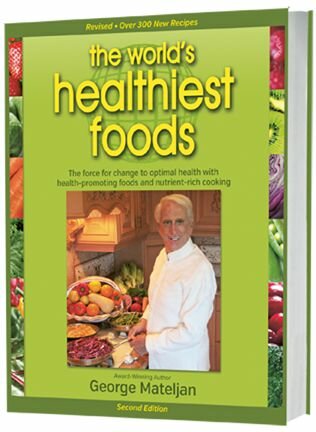 The World's Healthiest Foods are health-promoting foods that can change your life.
The World's Healthiest Foods are health-promoting foods that can change your life.
Try the exciting new lunch recipe from Day 3 of our upcoming 7-Day Meal Plan.
 The World's Healthiest Foods are health-promoting foods that can change your life.
The World's Healthiest Foods are health-promoting foods that can change your life.
Try the exciting new lunch recipe from Day 3 of our upcoming 7-Day Meal Plan.
No. Although it would be necessary to eat your vegetables raw in order to prevent any loss of nutrients whatsoever, we believe that it is possible to get the full, practical nutritional benefits from a food that has been cooked, provided that the cooking method is uniquely matched to the food and exposes the food to minimal damage. Here's our thinking:
While most animals thrive on diets consisting almost exclusively of raw, uncooked food, few human cultures have evolved or been sustained without incorporating some cooked foods, including cooked vegetables, into their eating practices.
In the case of some vegetables, cooking can actually increase the variety of nutrients that get released inside our digestive tract. The cooking of onions or the roasting of garlic are good examples. Onions and garlic are both members of the Allium family of vegetables. Most vegetables in this family have unusual amounts of sulfur-containing compounds that help protect our health. Heat actually increases the variety of sulfur-containing substances found in onions and garlic since it triggers some chemical reactions that create variations in those sulfur compounds.
Food research has made it clear that even 30 seconds in steam will alter the nutrient composition of a vegetable and will cause some loss of nutrients. However, when the exposure to steam happens for such a short time, this loss of nutrients is minimal and is not, in our opinion, a practical problem. What we believe is critical, however, is to treat every vegetable as a unique food, which has its own unique cooking requirements. To avoid unnecessary nutrient loss, cooking each food properly is absolutely essential. Five extra minutes of cooking can make an enormous difference in the nutritional quality of a meal. (This is about the time it takes to walk away from the stove, answer the phone, and say that you can't talk right now because you are in the middle of cooking). In addition, every food is unique and should be treated that way when it comes to cooking temperatures and times. For example, to preserve its nutrients, spinach should not be boiled for more than one minute. Kale, on the other hand, needs to steam for 5 minutes for maximum nutrient availability. Our write-ups of each of the World's Healthiest Foods explain just how to cook each food to retain its maximum nutritional benefits, and the directions for each recipe are tailored to meet the requirements of the ingredients being used.
The traditional rules about heat, water, time, and nutrient loss are all true. The longer a food is exposed to heat, the greater its nutrient loss. Boiling (submersing a food in boiling water) results in more nutrient loss than steaming (surrounding a food with steam) if all other factors are equal. The lower nutrient loss from steaming is the main reason this method of cooking is so often recommended in our recipes. No valid reason exists to expose food to high heat and boiling water for any prolonged period of time; even butternut squash can be fully cooked when steamed for 10 minutes!
Even when eating raw vegetables, other factors must be considered when evaluating the nutritional quality of the food. How fresh is the raw vegetable? Significant nutrient loss occurs in raw vegetables if they have been picked too long before they are eaten and have been exposed too long to light and air. How well will you chew the raw vegetables before swallowing them? When a food is not cooked, the body depends much more heavily upon chewing to help prepare the vegetable for digestion. Cooking a vegetable, even for a very short period like one minute, can be a way of enhancing its digestibility.
At the World's Healthiest Foods, we encourage you to enjoy both raw and cooked vegetables in your daily meal plan. By chewing well and savoring the tastes and textures of your raw food and by following our cooking suggestions that make the most of each food's unique cooking requirements, you will get optimal nutritional benefits from both!

Everything you want to know about healthy eating and cooking from our new book.

Order this Incredible 2nd Edition at the same low price of $39.95 and also get 2 FREE gifts valued at $51.95. Read more